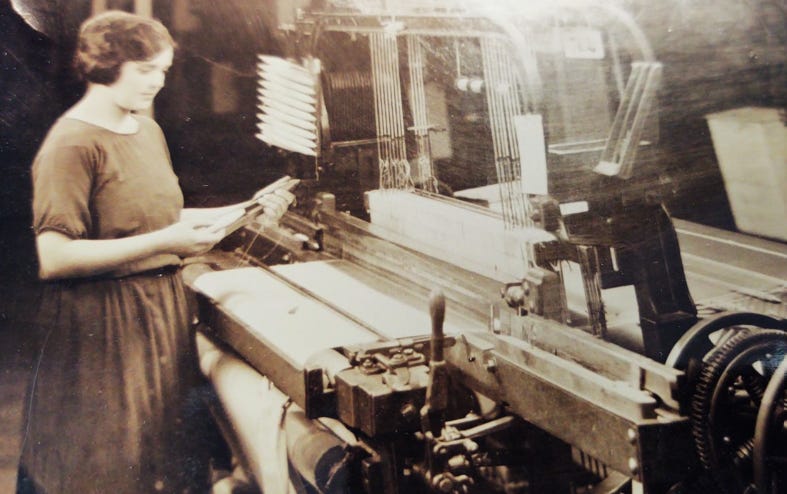“Was there work for women?” the narrator asks (and answers) in Glory of the Pines, “yes, plenty of it! But sorry work indeed.”[i] In the lumber camps, the ‘fortunate’ women worked as cooks and laundresses. The unfortunate—women and girls—worked in the iniquitous stockades, brothels “barely hidden in the forest's edge, and filled with women kicked from the slums of civilization….where orgies indescribable filled the night and killed soul and body.[ii] The lurid language Covert uses to describe Glory’s life as a sex worker was intended to shock readers and push the novel’s temperance message:
the slave's work in the daytime was killing her; the shocking things of the night were crushing her spirit...The clink of glasses at the miserable bar, and the passing in of the hard-earned cash of the poor prodigals soon to come to themselves, was but a part of the nightly program of this place.[iii]
In the towns that sprang up around the Upper Peninsula’s mines and stamp mills, a shortage of workers’ housing created only slightly less brutal employment opportunities for women. In Newton G. Thomas’ novel The Long Winter Ends (1941) Jim and Jake, two Cornish miners newly arrived in Calumet, observe their landlady hauling water from a hydrant in the street:
Nobody volunteered to help her. Every man there regarded that as her job.…Jim tried to sum the things the woman had to do. She cooked—for how many, he did not know—and cleaned and scrubbed, made beds, fetched wood and water and what more he couldn’t imagine… Jake nudged Jim and nodded toward her warming her hands at the stove, and said, “Comp’ny count an’ long hours…An’ t’ make un more discouragin’, low pay.[iv]
As James Steele makes clear through the character of Marie in Conveyor, women did the work of men, were paid less for it, and still had “women’s work” to do when they got home:
‘Oh, they do lose fingers in the fast jobs…before they know it that block’s comin’ down an’ they don’t have their fingers outa the way, an’ it’s just too bad for ‘em... If you stay awake, it’s O.K., but it you’re tired an’ got to sleep like so o’ them foreign women do, you’re just outa luck. …them poor women have to keep their house an’ send their kids to school an’ cook the meals an’ when they come to work they’re all tired out. There’s always one of two of ‘em with a finger or a hand off.’
‘Humph.’ Her neighbor grunted disgustedly. “it’s a wonder they allow sich things in a civilized country.’[v]
Part Seven of this series will continue with “Michigan Workscapes”
[i] Covert, 93.
[ii] Covert, 74.
[iii] Covert, 93-96.
[iv]Newton G. Thomas, The Long Winter Ends (New York: The Macmillan Company, 1941), 48-49.
[v] Steele, 143.







The underbelly of the economy back in the day. The ladies depicted in your historical excerpts did not seem to have a pleasant life. The word 'exploited' comes to mind.